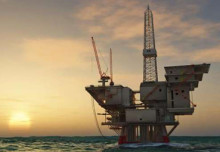Worries about the ever increasing emissions of certain gases, called “greenhouse gases” and their potential impact on the environment and the global climate are continuously growing. These gases are a byproduct of the combustion of fossil fuels and their emissions are derived primarily from power stations and automobiles.
International treaties such as the Kyoto Protocol set limits (or quotas) to the amount of greenhouse gases that countries can produce.
This Protocol sets specific limits on emissions and establishes the obligation of countries to operate a reduction in emissions relative to a basket of six gases, the most important of which is carbon dioxide (CO2), although the emissions of methane (CH4 ) and nitrous oxide (N2O) also contribute substantially to the problem.
The countries that adhere to the Treaty allocate these quotas to individual national companies: companies that exceed the established quota are required to purchase “carbon credits” for emissions in excess of their share, and those that remain below this percentage can sell “credits” unused. The “carbon credits” create a market for reducing greenhouse gas emissions by assigning a monetary value to the cost of pollution of the atmosphere. A “credit” gives the holder the right to emit one tonne of carbon dioxide.
The existence of a market for “carbon credits” allows those companies which have difficulties or excessive costs to reduce its emissions to pay another market participant to make cuts in emissions in its place. For example, to sell “carbon credits” could be an organization that undertakes projects targeted at reducing carbon emissions, such as planting a number of trees.
The most populous countries and economies tend to consume more energy and therefore emit a greater amount of greenhouse gases. Not surprisingly, the USA, China, India, Russia and the European Union countries are among the nations responsible for the higher carbon emissions in the world.
THE MARKET FOR CARBON LEAKAGE
There are currently two stock market for the trading of ” carbon credits “: the Chicago Climate Exchange (CCX) and the European Climate Exchange (ECX). The contracts of ” carbon credits ” include both existing and credits for emissions offsets emissions, which are generated from participation in offset projects eligible.
The factors that affect the variations of the emissions of carbon are:
Increase in the level of carbon leakage
If the levels of emissions continue to rise over time, it will also increase the number of companies willing or forced to buy ” credits ” extra, which could push the price of ” credits ” to the top. This, in turn, could encourage more groups to undertake environmentally friendly activities that can generate ” carbon credits ” to be sold to polluting companies.





 English
English Italiano
Italiano